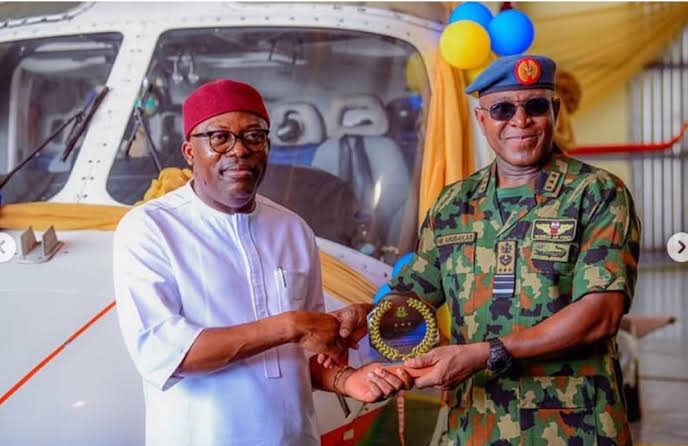Rivers State Governor Siminalayi Fubara donated an AgustaWestland AW139 helicopter to the Nigerian Air Force on Wednesday to enhance national security and aerial surveillance across the Niger Delta. The handover took place at the 115 Special Operations Group base in Rumuomasi, Obio/Akpor Local Government Area, where Fubara emphasized the aircraft’s role in protecting lives, securing national assets, and supporting crude oil production in the oil-rich region.
Fubara framed the donation as a practical move, not a political gesture, amid ongoing security challenges in Nigeria’s southern states. “This is not politics. This is a sincere commitment to support the operations and success of Nigeria,” he said in a statement released by his Chief Press Secretary, Nelson Chukwudi. He urged the Air Force to prioritize deployment in Rivers State and the broader Niger Delta, where pipelines and other infrastructure face frequent threats from vandalism and militancy.
The helicopter, previously owned by the Rivers State government, had been grounded due to a contractual dispute with Aero Contractors, a Nigerian aviation firm, over unpaid revenue. Fubara said his administration reclaimed the aircraft after resolving the issue and decided to donate it following a request from the Chief of the Air Staff. He noted that the helicopter’s advanced capabilities, including night vision and long-range surveillance, make it a valuable asset for emergency response in the region’s swampy, hard-to-reach terrain.
Beyond the aircraft, Fubara’s government pledged additional support to the Air Force base, including resurfacing the runway and constructing housing units for personnel. “We want to see a stronger partnership that delivers results,” he said, highlighting collaboration as a cornerstone of his security strategy.
Read More: Rivers Govt Awaits Supreme Court Ruling to Enforce Implementation
The Niger Delta, home to Nigeria’s oil industry, produces over 1.5 million barrels of crude daily, according to government estimates, yet security lapses often disrupt output. Fubara linked the donation to economic stability, arguing that improved aerial monitoring could deter attacks on pipelines and boost production.
It bears mentioning that for now, Fubara remains focused on practical contributions, calling the donation “a starting point” for enhanced federal-state cooperation.




